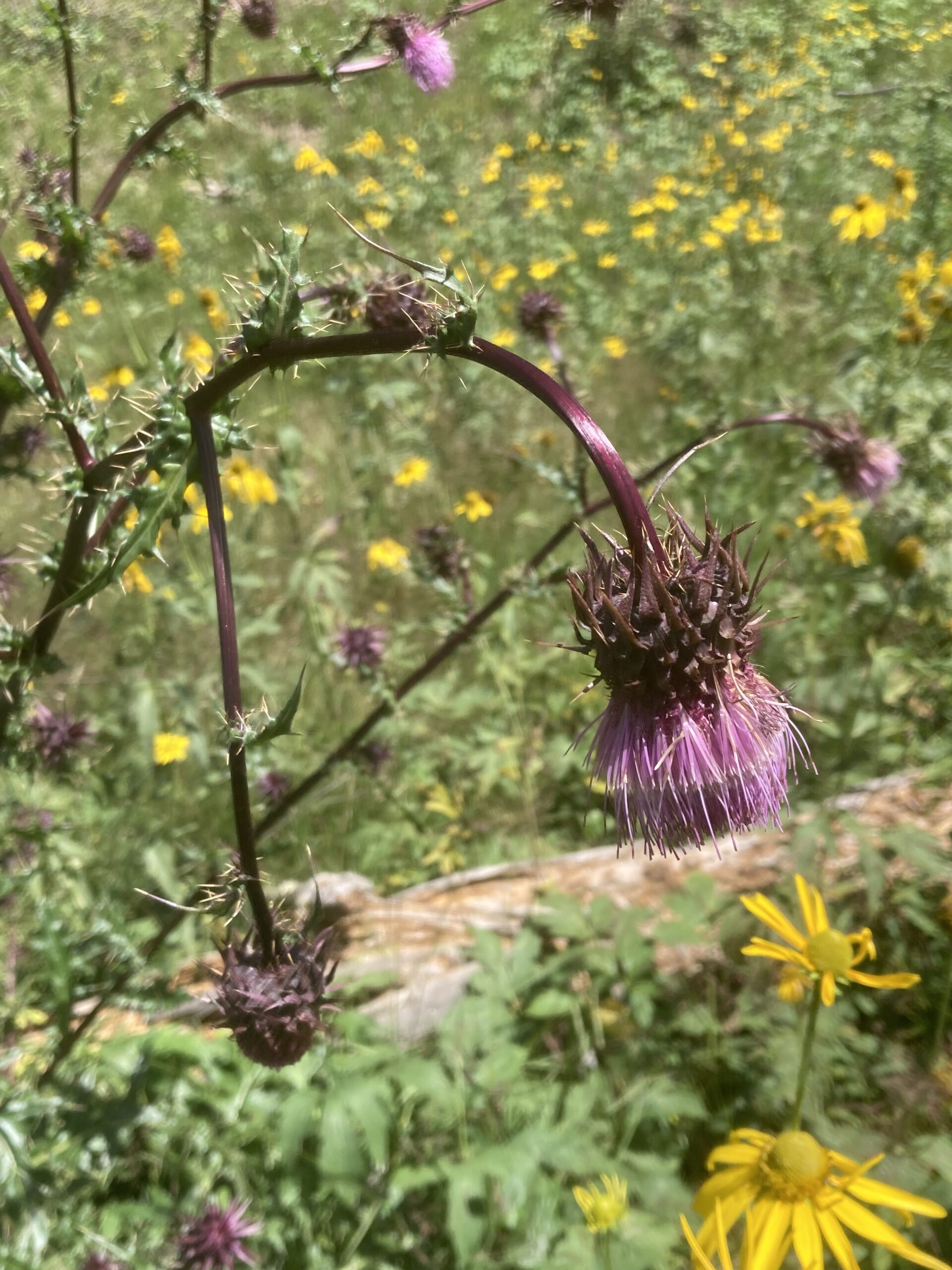The Lincoln National Forest is home to an amazing array of endemic species, and we have had the opportunity to see many of them in their natural habitat. In fact, Penstemon neomexicanus is our top priority species as it serves as the main nectar source for the endemic/endangered Sacramento Mountain Checkerspot Butterfly. Other endemic species we have encountered include the Sacramento Mountain Thistle (Cirsium vinaceum) which I have lovingly dubbed “The Goth Thistle” due to its dark colors and nodding heads, as well as a recently discovered species of geranium which was thought to have possibly disappeared but one of our crew members spotted it on one of the craziest hikes I’ve ever been on. We also participated in prickly poppy surveys, another plant endemic to the area (just picture a thistle with the flowers of a poppy).

Being in an area so full of rare species and getting to learn about and support them feels very special, and I am excited for each new opportunity. But at the same time, it is often a sad reality that the majority of these rare, endemic species are on the brink of extinction. Every time we conduct a survey we hear that there are lower numbers each year despite increasing efforts to protect and foster their growth. The only thing we can do is try our best now to support what we have, but it can sometimes be disheartening. I try to appreciate the fact that I get to experience these species on a regular basis, and see individuals as happy and heathy in environments we are trying so hard to protect and restore. Experiencing the conditions that these species have already lived through innumerable times myself, such as fire and extreme flooding for the area, and then happening upon vigorous populations (even if small) gives me hope that these amazing species can live on.
Selfishly, more than anything, being part of these restoration efforts makes me feel better about my own place in the world. It’s easy to get knocked down by all the bad news we hear every day and sometimes buying the eco-friendly option or recycling doesn’t feel like enough. But knowing that even if it is small, the work I get to do with my time in Lincoln is in fact, making a difference. Having a chance to be part of the conservation efforts I love to hear about and support has dramatically changed my outlook on the future.
